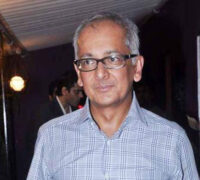To continue amplifying these development opportunities, we need more formal tertiary institutions, including management schools, which will bring a different dimension to education in India. While the penetration of mobile phones and digital devices has spurred online learning, there is no substitute for a physical campus and the in-person experience. The government has recently allowed more universities abroad to set up campuses in India, which will hopefully further develop the talent we need to drive these transformations and growth.
Looking back at your career, what do you think were the key principles that drove your transformation as a leader?
When I completed my MBA with IMD in Lausanne and returned to India in 1991, I inherited two cement companies which were almost in Chapter 11. Having lived abroad before that, it was a long and tough journey reviving them – I probably didn’t even have the language skills to communicate with bureaucrats and convince people to support us in turning the businesses around. We finally became debt-free in 2015, and a big part of the strategy to get there was about changing the culture of the company to improve our brand image, and to attract the best people with the right skills. Once we succeeded in hiring great people, it helped us to turn things around. As the market improved, we restructured the business and invested in new technologies for future growth. As they were part of our family business set up by my grandfather, I didn’t want them to fail. That was my main driving force in turning the business around.
In some ways, this is an important leadership lesson, to have the audacity to believe that you will succeed even when you’re surrounded by naysayers. What advice would you give to someone facing a similar situation?
You have to build a great team and hire the best people. At the same time, it’s also important to keep yourself ahead of the curve when it comes to industry trends and business knowledge, so stay curious, read widely, and learn more. More importantly, seize opportunities that come your way. While going through the difficult years with the company, I had an opportunity to invest in cricket, which everyone thought was crazy, but I believed in it. I trusted my instincts, but beyond that, had studied the business model and believed it would turn around, so I took the plunge and invested in it, and it has probably turned out to be the best investment I have ever made.
Jay Mehta spoke with Misiek Piskorski at the inaugural India Management Transformation Forum held in Mumbai in June. If you would like to be invited to similar events in the future and meet leaders like Mehta, register your interest here.
YouTube




 Podcast available
Podcast available